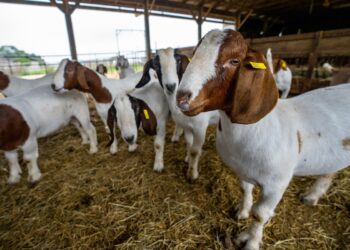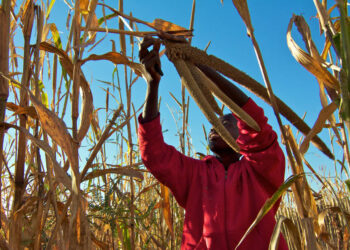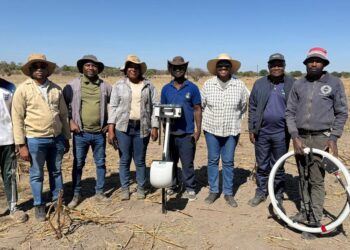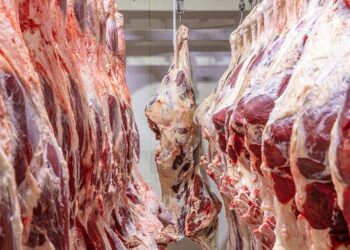
Namibia is importing pork from the European Union (EU) to supplement its domestic supply, as local pork production falls short of meeting consumer demand.
During the first quarter of 2023, local pork production accounted for only 31.5% of the country’s pork consumption requirements, according to the Meat Board of Namibia.
The remaining 68.5% was filled by imports, primarily from Germany (52.8%), Spain (24.5%), South Africa (9.2%), and the EU (13.4%). These import figures have risen by 4.9% compared to the same period last year.
“The significant increase in pork imports from the EU market is owed to the foot-and-mouth disease outbreak in South Africa that has necessitated a shift as an alternative. The shift has been associated with significant retail price increases due to import duties charged based on SACU, the common external tariff schedule. A total of 2,223,415 kg of pork was imported during the first three months of 2023, relative to the 2,120,551 kg imported during the same period in 2022,” the Meat Board Q1 report stated.
Research firm Simonis Storm noted that ongoing pork shortages caused by the foot-and-mouth disease outbreak in South Africa continue to drive up local pork prices. In March 2023, prices rose by 48.9% year-on-year.
In the cattle market, Namibia marketed a total of 53,157 heads of cattle during the first quarter of 2023, as reported by the Meat Board.
Out of the total, 57.6% were live exports.
The South African market accounted for 99.4% (30,436 heads) of all live cattle exports, while Botswana and Angola received the remainder for breeding purposes.
“Of these animals, 30,436 heads, predominantly weaners, 99.5% were destined for feedlots in South Africa, while 0.5% were exported for farming purposes,” the report stated.
However, a decline in the goat market was recorded, with a 13.5% drop in total goat marketing during the first quarter of 2023 compared to the same period last year.
Only 20,046 heads were marketed during this period, down from 23,184 heads in 2022.
On the other hand, the exportation of live sheep experienced significant growth, reaching 118,853 heads during the first three months of 2023.
This marks a 36.5% increase compared to the level witnessed in the same period of 2022. Despite this growth, live exports lost 5.5% market share, accounting for 72.7% of total marketing compared to 78.2% in the previous year. Almost all sheep exports (99.6%) were destined for South Africa, with the remaining 0.4% going to Botswana, Angola, and Zambia.
“Despite this strong growth, live exports lost 5.5% market share accounting for 72.7% of total marketing compared to 78.2% last year. Up to 99.6% of all sheep exports were destined for South Africa while the remainder 0.4% was destined to Botswana (174 heads), Angola (317) and Zambia (34 heads). 89.2% of live sheep exported were destined to South African abattoirs mostly in the Northern Cape.â€
Namibia’s agricultural sector, which recorded a 2.6% growth last year, with all sub-sectors of the industry expanding in output in 2022, is forecasted to post positive growth this year.
Â
Â
Â
Â











